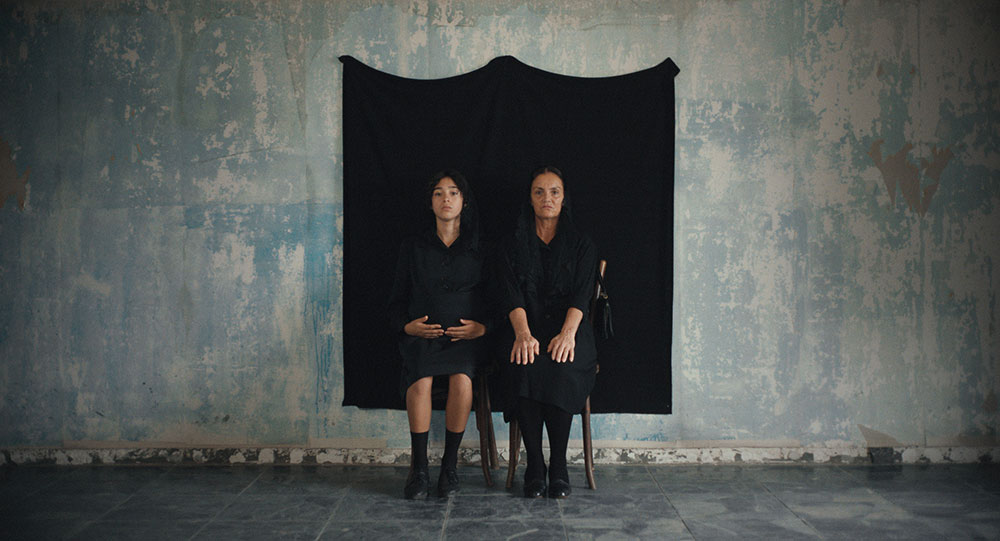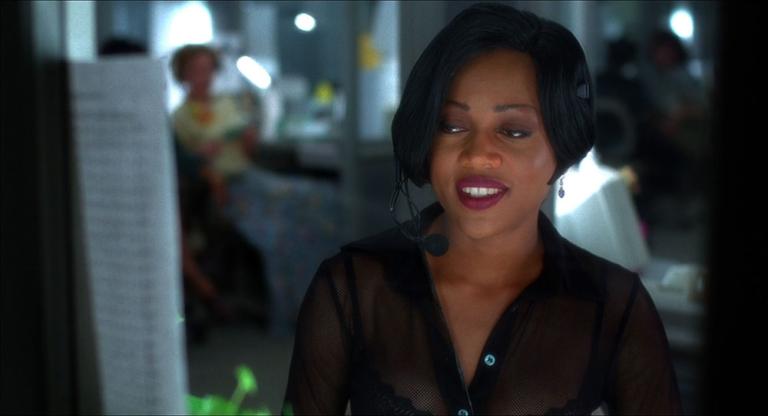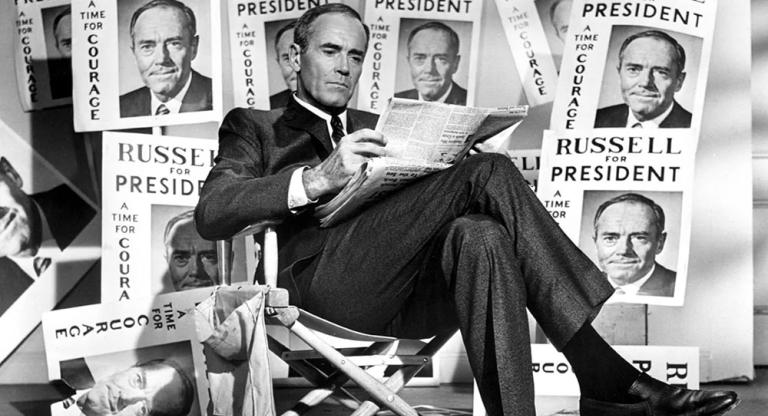In a sleepy Andalusian village that is haunted by memories of fathers lost to war, ominous messages from church loudspeakers fill the air: “Alive today, dead tomorrow.” A bored teenager, Antonia (Rosario Ortega), bemoans her advanced pregnancy. “I only wanted to fuck,” she says. “I wanted tra-la-la.” Soon she will head north to Catalonia to find a new life for herself in El Prat, a town on the outskirts of Barcelona. Antonia abandons her newborn daughter Carmen, leaving her in the care of Milagros, her mother and the baby’s grandmother. Cut to fifty years later: Carmen (Maria Luengo), a casting director at a photo agency, is assigned to go out on the city streets and find “authentic” people for a political ad campaign. She runs into an older woman, Antonia, hawking homemade perfumes as a street vendor.
The Spanish director Laura Ferrés’s remarkable debut feature, The Permanent Picture, has a stylistic audacity and experimental quality that belies its crystalline and observant approach. Using non-professional actors and a laconic storytelling style, Ferrés unfolds a narrative about memory, identity, and maternal ties. She is a miniaturist in the best sense, eschewing melodrama in favor of quiet moments; the film works the way that memory does, with motifs that emerge and re-emerge over time. One of the film’s key threads is its focus on portrait photography, from family photographs to the use of real people in advertising campaigns. Ferrés—who, like Carmen, worked as a casting director—is interested in the way that a photograph freezes time and embalms the ephemeral. While a portrait can show a subject’s personality it can’t reveal their inner mysteries.
The Permanent Picture opens with a photo session that takes place in the rural village that Antonia will escape from. During the session, a young Antonia and Milagros are photographed, and their image is superimposed with an existing portrait of the former’s deceased father. This creates an eerie composite that reunites the family in a ghost image. In a later scene, Carmen has an ill-fated first date at the workshop of a man who creates prosthetic limbs. He shows Carmen how an amputee can look at their one arm in a mirror to create the illusion that the missing arm is still there. Through a trick of the brain, they feel pain in the non-existent limb; it’s a key metaphor for the film’s notion that “time cures all but the wounds remain.”
Ferrés has labeled The Permanent Picture a “depressing comedy.” As befitting this phrase, the film is a study in contrasts and dualities, between city and country, past and present, solitude and intimacy, and seriousness and humor. One of the photographers in the film tells his subjects not to smile, saying “laughter is a spasm that reveals a lack of reason.” But for Ferrés, a playful approach is essential. As she said about the film’s flashes of oddball humor: “There is a darkness to the film that I balance with absurd humor. In fact, if there is no humor, then it is not a serious film.” (This may help explain the film’s beguiling throughline involving bananas.)
Of all the contrasts in the film, the most striking one is to be found in the central relationship between the adult Antonia and Carmen. Although Carmen is constantly meeting and interacting with people as a casting director, she is shy and reserved; in fact, she is content being an observer. The more outgoing Antonia is comfortable in her skin and unafraid to be confrontational. In their first encounter in the city, as strangers, Antonia nearly assaults Carmen for trying to photograph her. Unaware of the family bond that connects them, they become friends, and with a dreamlike and lingering night-time kiss, they briefly share a lovers’ intimacy. Maria Luengo is stoic but expressive as Carmen, evoking the stone-faced Buster Keaton. As Antonia, Ortega is Chaplin to Luengo’s Keaton. Her face captures an extraordinary range of emotions and we feel her history as a woman who has always been on the move trying to escape from her past. Toward the end of the film, she sits for a portrait and as she reflects on her life and her time with Carmen, we observe her in a long and heart-wrenching close-up worthy of Chaplin’s City Lights (1931).
The Permanent Picture screens this evening, April 10, at the Museum of Modern Art, as part of “New Directors/New Films.” Director Laura Ferrés will be in attendance for a Q&A.



